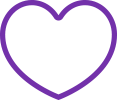-
Gaza Emergency
The attacks on Gaza have resumed. Over 1000 people have been killed since March 18th. Families are not only facing starvation and loss but also enduring ongoing violence. The need for emergency aid is critical. Give mercy to Gaza today.
- Gaza Emergency
- Gaza Hot Meals
- Gaza Prosthetics
- Gaza Container Homes
- Gaza Mobile School
- Gaza Water
- Gaza Tents
- Gaza Medical Fund
- Zakat For Gaza
-
Zakat
Zakat ensures that a portion of your surplus wealth is shared with those struggling to survive. This beautiful pillar of our faith, spreads mercy not only to those who receive but also to those who give.
Give Your Zakat Now -
Orphans
Give the gift of hope to an orphan living in unimaginable hardship without their parents. Honor the Prophet’s (PBUH) Sunnah of mercy to children in one of the most beautiful acts of charity.
Sponsor an orphan now -
Appeals
Your mercy can save lives and transform communities. Explore our appeals and multiply your blessings.
- Gaza Emergency
- Pakistan Emergency
- Syria Rebuilding
- Sudan Emergency
- Yemen Emergency
- Lebanon Emergency
- Gaza Prosthetics
- Water Distribution
- Mosques Appeal
- Mercy Packages
-
Projects
Explore all our projects and learn how we’re transforming whole communities by providing sustainable water solutions, brightening children’s futures, empowering people with livelihoods, and supporting schools and clinics.
Projects -
About us
Human Appeal is a non-profit organization working across the globe to strengthen humanity’s fight against poverty, social injustice and natural disaster. Through the provision of immediate relief and the establishment of self-sustaining development programs, we aim to invest in real, effective solutions.
Find out more -
Volunteer with us
Giving your time means helping to give those most vulnerable a chance at the future they deserve.
Volunteer with us -
Sign in
Haven't got an account?
Register an account -
-
- 877 225 2251







